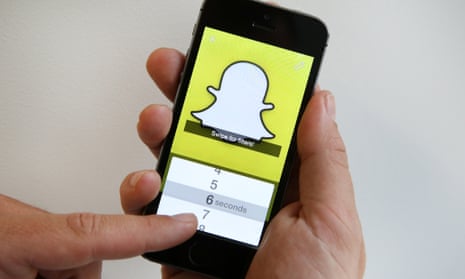Messaging app Snapchat has raised its latest round of funding, $485.6m, which may value the US-based company at more than $10bn.
The funding was revealed in a filing with the US Securities and Exchange Commission (SEC), with 23 investors taking part in the round, which takes Snapchat’s total funding so far to just under $648m.
The filing leaves those investors unidentified, but reports from Bloomberg and TechCrunch both suggest technology company Yahoo and venture capital firm Kleiner Perkins Caufield & Byers were involved in the round.
Both reports also suggest that the round values Snapchat at $10bn, little over a year after the company rejected a $3bn acquisition offer from Facebook.
The details of the funding round were revealed at the end of a year that has seen rapid growth for Snapchat, which is thought to now have 200 million active users sending photos and videos to one another – up from 100 million earlier in 2014.
Snapchat has also made its first steps towards making money, launching its first advertisement – a 20-second trailer for horror film Ouija, paid for by studio Universal Pictures – in October.
2014 was a challenging year for Snapchat in other ways, however. The company eventually settled a lawsuit from ousted co-founder Reggie Brown, and faced scrutiny in October after explicit images sent by users were leaked in a breach nicknamed “The Snappening”.
That turned out to be due to people using an external site called SnapSaved, which promised the ability for Snapchat users to save the pictures sent to them by friends, rather than have them self-deleted.
Snapchat warned users not to log in to its service through third-party apps and sites as a result, although 2014 also saw US regulator the Federal Trade Commission (FTC) reprimanding the company over its claims that users’ messages were guaranteed to “disappear forever”.
The FTC recently reached a settlement with Snapchat that requires the company to put in place a “comprehensive privacy program” to protect its users, to be monitored by an external privacy and data protection expert for the next 20 years.
Still, investors haven’t been put off the company, leaving it flush with cash to continue its growth in 2015. Besides growing its advertising business, Snapchat has ambitions to become more than just a messaging app for its predominantly young users.
In November 2014, a report by Digiday claimed that Snapchat was in talks with companies including BuzzFeed, Spotify, Vice and MailOnline to add music, news and videos to a new section of its app called “Discover”.
In December, leaked emails from Hollywood studio Sony Pictures – whose chief executive Michael Lynton is a board member at Snapchat – hinted at ambitions to turn Snapchat into a fully-fledged digital music service.
The leaks also revealed Snapchat’s acquisition of QR code-scanning startup Scan.me and eyeglass video camera firm Vergence Labs. Snapchat chief executive Evan Spiegel subsequently revealed he was “devastated” by the leaks of the company’s plans.
Messaging apps’ next threads: encryption, payments, media, ads

Comments (…)
Sign in or create your Guardian account to join the discussion